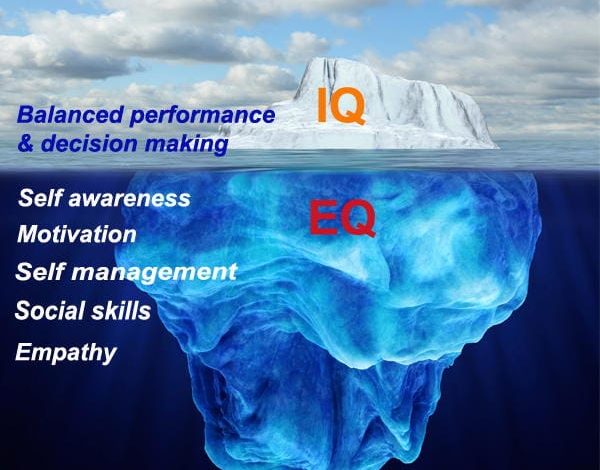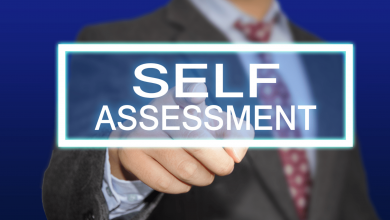Why Emotional Intelligence (EQ) Is Important

What Is Emotional Intelligence (EQ)
Have you ever asked yourself what is the definition of ‘Emotional Intelligence’ and how it has impacted you? If you have been pondering over this question many times and blaming those feelings that have swamped you for making bad decisions and actions. It’s likely you’ve developed some or all of the essential skills that make up the foundation of the emotional intelligence quotient (EQ).
When we mentioned Emotional Intelligence, it is like a crossroad of cognition and emotion. A vital component that responses to our all of our resilience, motivation, empathy, reasoning, stress management, communication, and the ability to read and navigate a plethora of social situations and conflicts. If Emotional intelligence is well cultivated, it will offer one with opportunity and a more fulfilled life.
Empathy
Emotionally intelligent people can rattle on about anything and never express any emotion, but instead use language to describe and manage their experiences. Emotive intelligence allows them to deal with life’s issues by being able to clarify their thoughts and feelings in various contexts. It enables them to see the world from others’ perspectives, to imagine things they couldn’t otherwise achieve, to make educated guesses about future situations, to evaluate potential courses of action and to consider innovative solutions. On the other hand, those who lack EQ tend to be passive, easily tired and easily bored; they are distractible, detail-oriented, and poor decision-makers.
It is our very makeup that defines us as unique individuals, but EQ does much more than defining us as individuals. Through the process of building and developing emotional intelligence, we can unlock our true potential, improve our interpersonal relationships, and manage and reduce stress. When we are strong emotionally, we become resilient. And when we are resilient and successful, we are empowered.
Emotionally intelligent people are excellent problem solvers. They can solve problems by identifying their cause and eliminating them, or by planning an effective way to attack the problem. Emotions help us solve problems – and the most effective ways to manage our emotions involve both building and maintaining strong EQ.
Research suggested that resilience plays a mediational role between Emotionally Intelligent and Self-motivated Achievement. In other words, Emotional Intelligence is a prior requirement for resilience, and resilience can lead to greater motivation. Apart from Resilience, perseverance is another component that motivates endurance in the face of obstacles. Findings also concluded that people with a higher level of emotional intelligence displayed greater resilience and were less likely to succumb to depression.
Self-Awareness
Another aspect of emotional intelligence is self-awareness. Self-Awareness is the ability to monitor your own mental and emotional state. You might think you know what’s going on, but many aspects of your life are shrouded in mystery. Self-awareness helps us learn to recognize our own emotional states and how they affect our thoughts, behaviours, and decisions on what to do and when to do it. This helps us build and maintain effective coping mechanisms, and keep us grounded emotionally. It is no surprise that the best methods for increasing your IQ through emotional intelligence training are also highly effective ways for reducing your stress levels as well.
Emotional Regulation
One of the things that affect an employee’s performance, is his ability to manage his emotions. One must stay calm in stressful situations and avoid getting into negative behaviours such as complaining or sabotaging team efforts. According to the Emotional Intelligence Society, workplace stress has been shown to negatively impact overall performance, productivity, and company morale. One must therefore learn to effectively manage these and other types of workplace stresses. One must go beyond basic workplace management skills such as managing workflow and assignment schedules to develop additional techniques that would help improve job satisfaction and performance.
Building and maintaining effective coping mechanisms that support self-regulation also enhances one’s emotional intelligence. Employees who can effectively manage their anger and anxiety, by not acting on raw feelings in an impulsive or destructive manner may alleviate or reduce negative feelings and cultivates self-confidence. For example, one does not have to worry about performance pressures that come with the territory. These employees can instead focus on building healthy relationships within the workplace, which boosts motivation. And while motivation alone cannot bring about change, it can certainly help improve performance.
Social Skills
To establish a successful communication and negotiation process, the ability to identify, manage, and understand emotions are crucial factors without resorting to confrontation. A person with high Emotional Intelligence is better equipped to manage conflict and build meaningful relationships given their elevated capacity to understand, and therefore address, the needs of those with whom they engage.
In a nutshell, good social skills are the summation of all of the components of EQ: self-awareness, emotional regulation, and empathy. If we are striving to excel in our overall life satisfaction and achievement, developing an aptitude for Emotional Intelligence will have a positive impact on our well-being.




